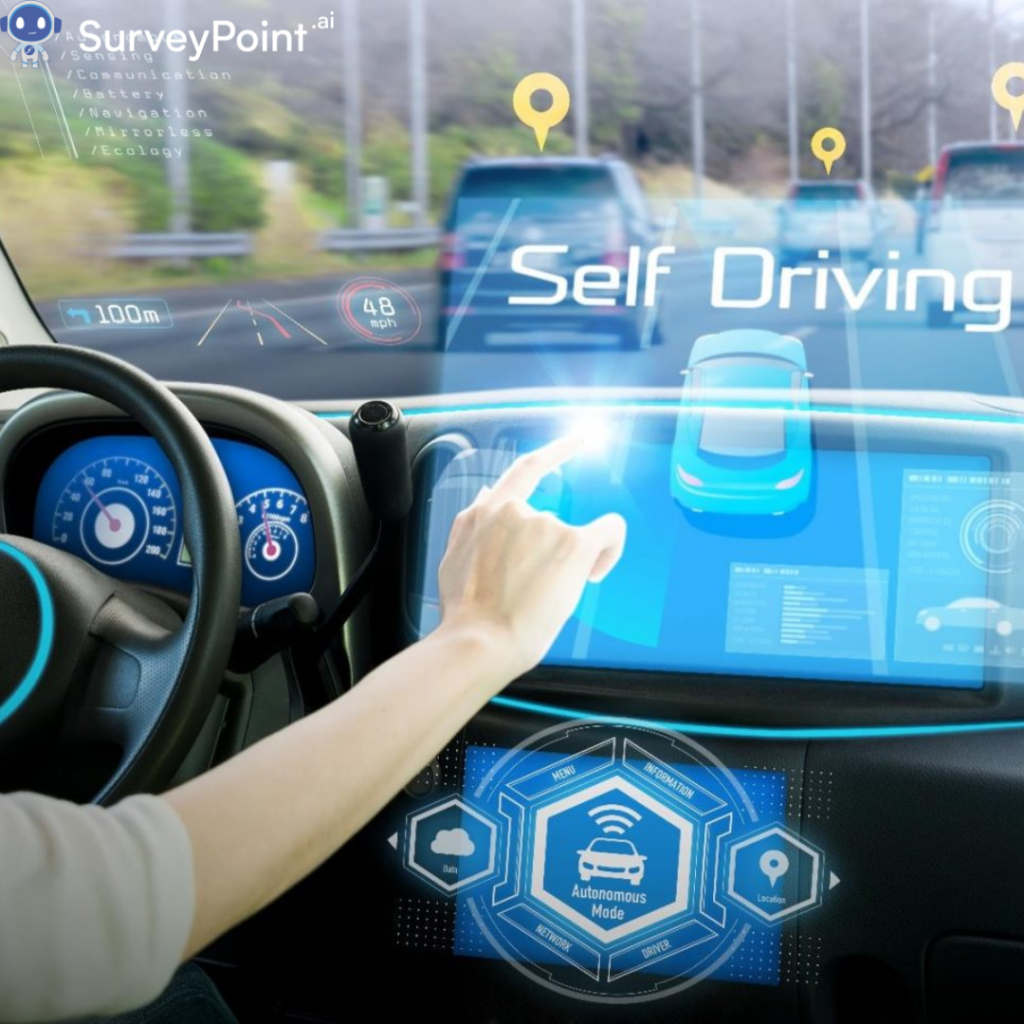
The concept of self-driving cars has evolved from a futuristic dream to an impending reality that promises to transform how we think about transportation. With rapid advancements in artificial intelligence, sensor technology, and machine learning, self-driving cars are poised to become a significant part of our daily lives. But how will these autonomous vehicles change the way we travel, work, and live? Let’s explore the potential impact of self-driving cars on transportation and society as a whole.
1. Increased Safety on the Roads
One of the most compelling arguments for the adoption of self-driving cars is the potential to drastically reduce accidents. Human error is a leading cause of traffic accidents, accounting for over 90% of crashes. Autonomous vehicles, equipped with advanced sensors, cameras, and AI-driven decision-making, can react faster than humans and make more rational decisions in critical situations.
Key Benefits:
- Fewer Accidents: With AI controlling the vehicle, distractions, fatigue, and impaired driving are eliminated.
- Consistent Obedience to Traffic Laws: Self-driving cars will strictly follow speed limits, stop signs, and traffic signals, reducing the likelihood of violations.
- Real-Time Data Processing: Autonomous vehicles can analyze vast amounts of data from their surroundings in real time, predicting and avoiding potential hazards.
2. Reduced Traffic Congestion
Self-driving cars have the potential to alleviate traffic congestion, a growing problem in urban areas. Autonomous vehicles can communicate with each other and with traffic management systems, optimizing routes and reducing bottlenecks.
Key Benefits:
- Efficient Traffic Flow: Autonomous cars can maintain optimal speeds, reduce unnecessary braking, and coordinate with other vehicles to avoid traffic jams.
- Adaptive Traffic Signals: Integration with smart city infrastructure allows traffic signals to adjust in real-time based on traffic conditions, reducing waiting times at intersections.
- Carpooling and Ridesharing: Self-driving cars can easily facilitate carpooling, reducing the number of vehicles on the road and minimizing congestion.
3. Environmental Impact
The widespread adoption of self-driving cars could have a significant positive impact on the environment. Autonomous vehicles are expected to be predominantly electric, reducing reliance on fossil fuels and lowering greenhouse gas emissions.
Key Benefits:
- Reduced Emissions: Electric self-driving cars produce zero emissions, helping to combat climate change.
- Optimized Driving Patterns: Autonomous vehicles can drive more efficiently, avoiding sudden accelerations and unnecessary idling, leading to lower energy consumption.
- Decreased Need for Parking Spaces: Self-driving cars can drop passengers off and then move to remote locations or continue operating, reducing the need for vast urban parking lots, which can then be repurposed for green spaces or other uses.
4. Accessibility and Mobility for All
Self-driving cars could revolutionize mobility for people with disabilities, the elderly, and those who cannot drive. Autonomous vehicles will provide greater independence and freedom for individuals who rely on others for transportation.
Key Benefits:
- Enhanced Accessibility: Self-driving cars can be programmed to cater to the specific needs of disabled passengers, including easier entry and exit, customized seating arrangements, and voice-activated controls.
- Mobility for the Elderly: Autonomous vehicles will allow elderly individuals to maintain their independence, reducing the need for assisted living and giving them greater freedom.
- Increased Availability: With self-driving cars, transportation can be available on-demand 24/7, regardless of location or time.
5. Transformation of the Transportation Industry
The rise of self-driving cars will have profound implications for the transportation industry. From taxis to trucking, many sectors will need to adapt to the new landscape.
Key Changes:
- Ridesharing Services: Companies like Uber and Lyft are already investing in autonomous technology. Self-driving rideshare vehicles could offer cheaper, more efficient services with no need for human drivers.
- Freight and Logistics: The trucking industry is set to be revolutionized by autonomous vehicles, reducing the need for long-haul drivers and increasing efficiency in supply chains.
- Public Transportation: Autonomous buses and shuttles could complement existing public transport networks, offering flexible and on-demand routes.
6. Urban Planning and Infrastructure
As self-driving cars become more prevalent, cities will need to rethink their infrastructure. Roads, parking, and public spaces will be redesigned to accommodate autonomous vehicles, leading to smarter, more efficient cities.
Key Changes:
- Reduced Need for Parking: As autonomous vehicles can continuously operate or park themselves in remote areas, urban centers may repurpose parking lots for other uses, such as parks, housing, or commercial developments.
- Redesigned Roads: With fewer accidents and optimized traffic flow, roads could be narrower or feature dedicated lanes for autonomous vehicles.
- Smart City Integration: Self-driving cars will work best in cities equipped with smart infrastructure, such as connected traffic lights, sensors, and communication networks that facilitate seamless travel.
7. Challenges and Considerations
While the benefits of self-driving cars are clear, several challenges must be addressed before they can fully replace traditional transportation.
Key Challenges:
- Regulation and Legislation: Governments need to develop new laws and regulations to address the ethical and legal implications of autonomous vehicles.
- Security Concerns: Autonomous vehicles rely on complex software that could be vulnerable to hacking, posing potential security risks.
- Job Displacement: The rise of self-driving cars could lead to job losses in sectors like trucking, taxi services, and delivery, necessitating new job training and economic support systems.
Conclusion
Self-driving cars are on the brink of transforming the transportation landscape, offering safer roads, reduced congestion, and greater accessibility. While challenges remain, the potential benefits of autonomous vehicles are enormous, promising a future where transportation is more efficient, sustainable, and inclusive. As technology continues to advance, the widespread adoption of self-driving cars could usher in a new era of mobility, fundamentally changing how we live, work, and travel. For more information checkout- surveypoint.ai




